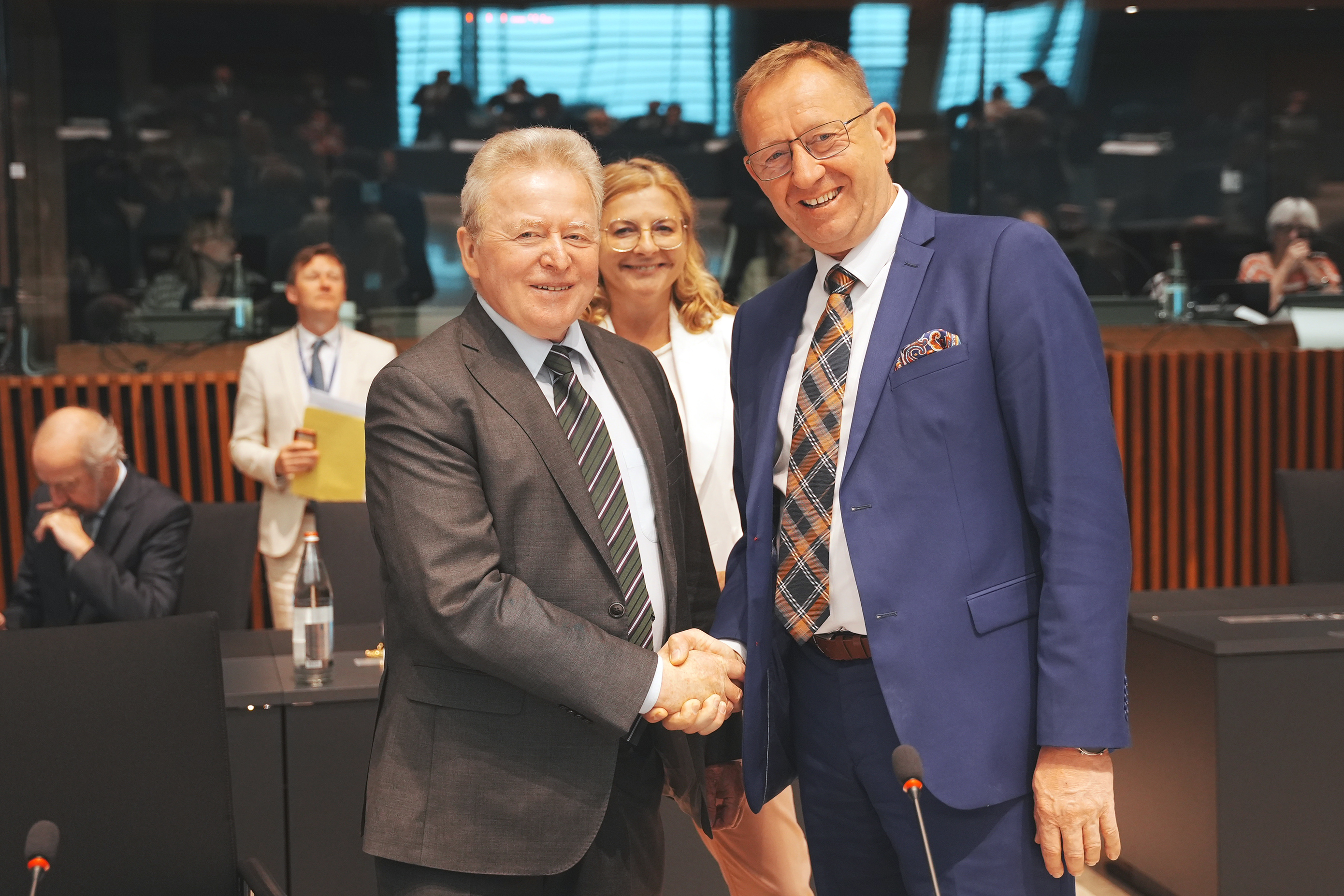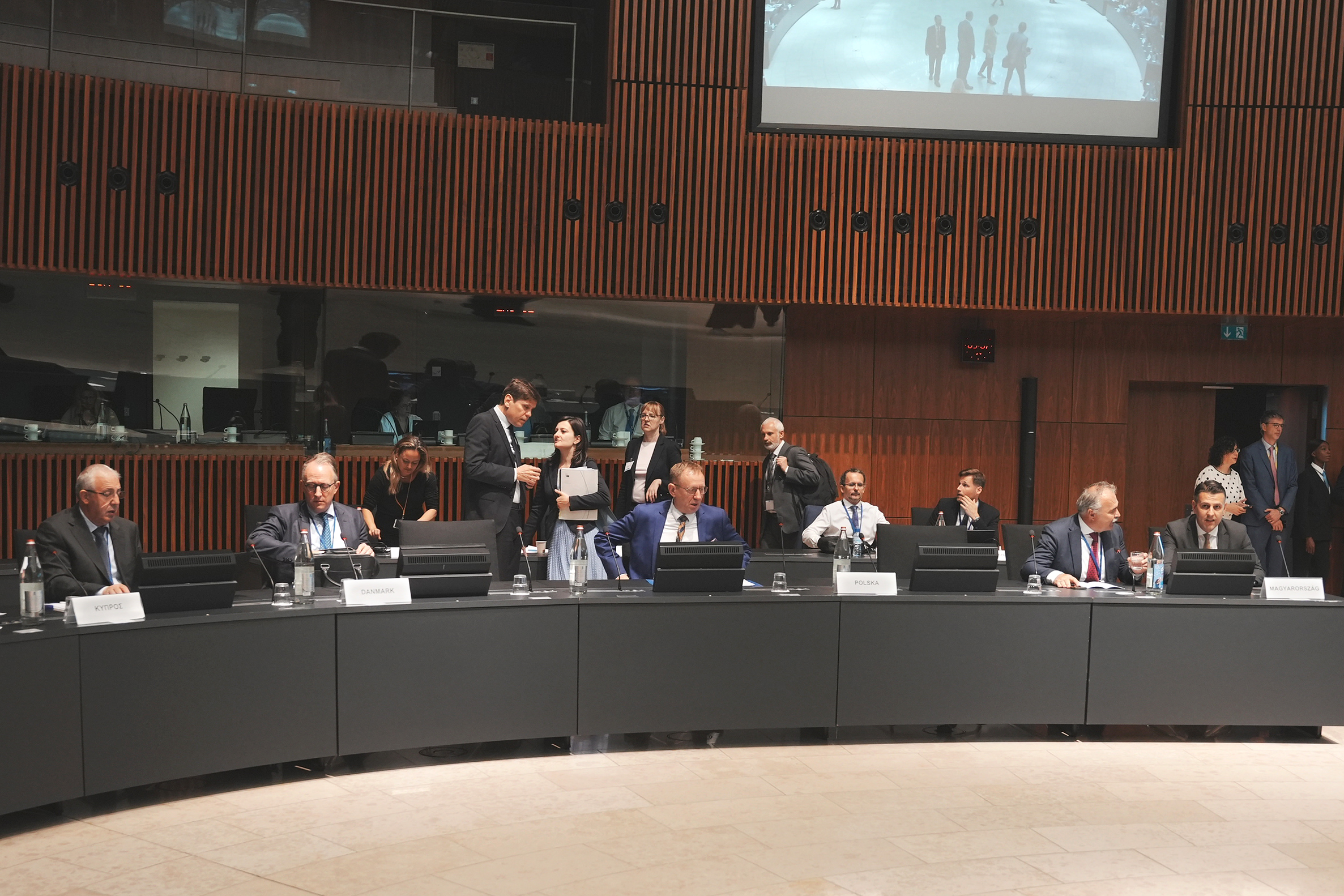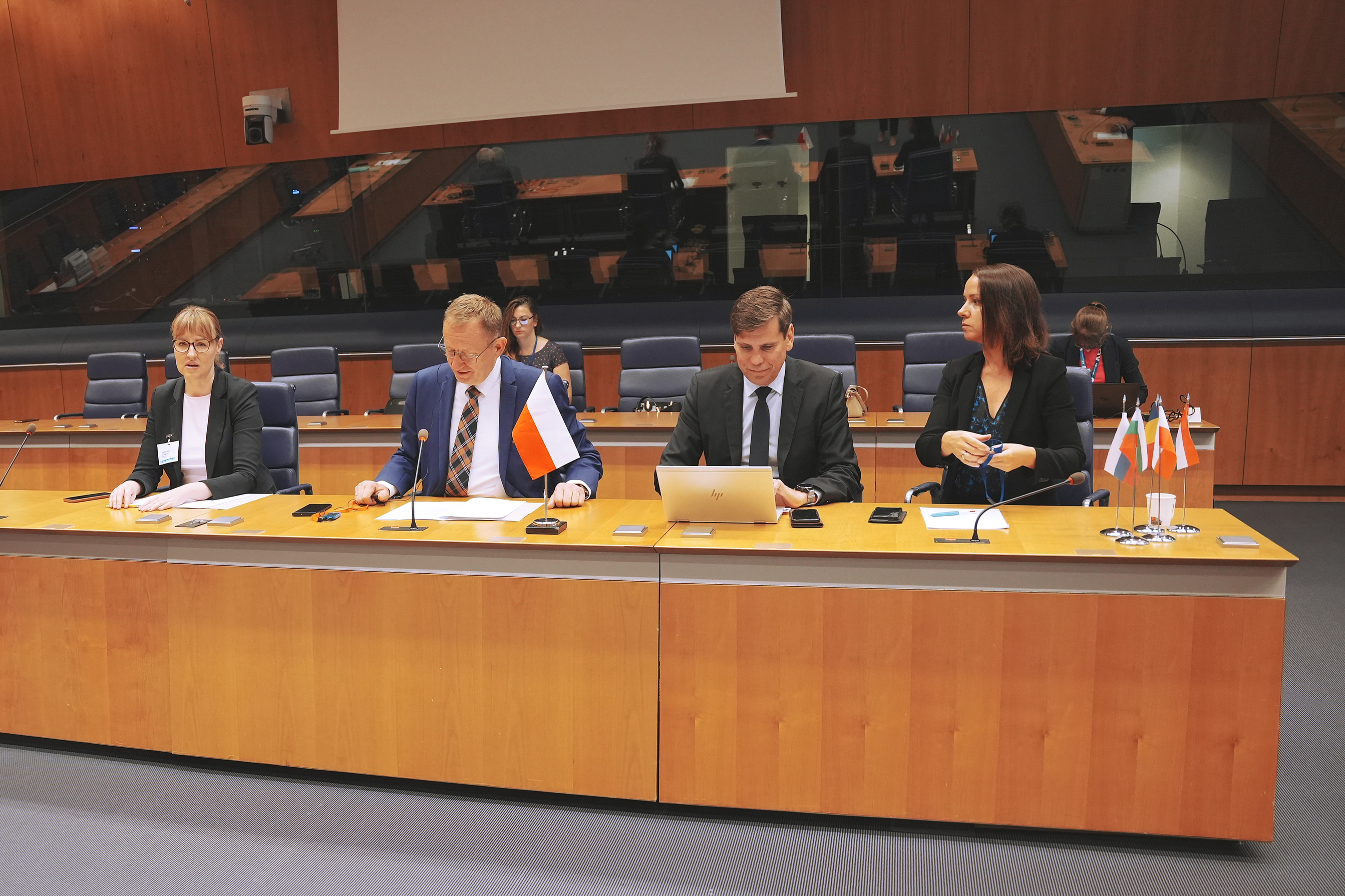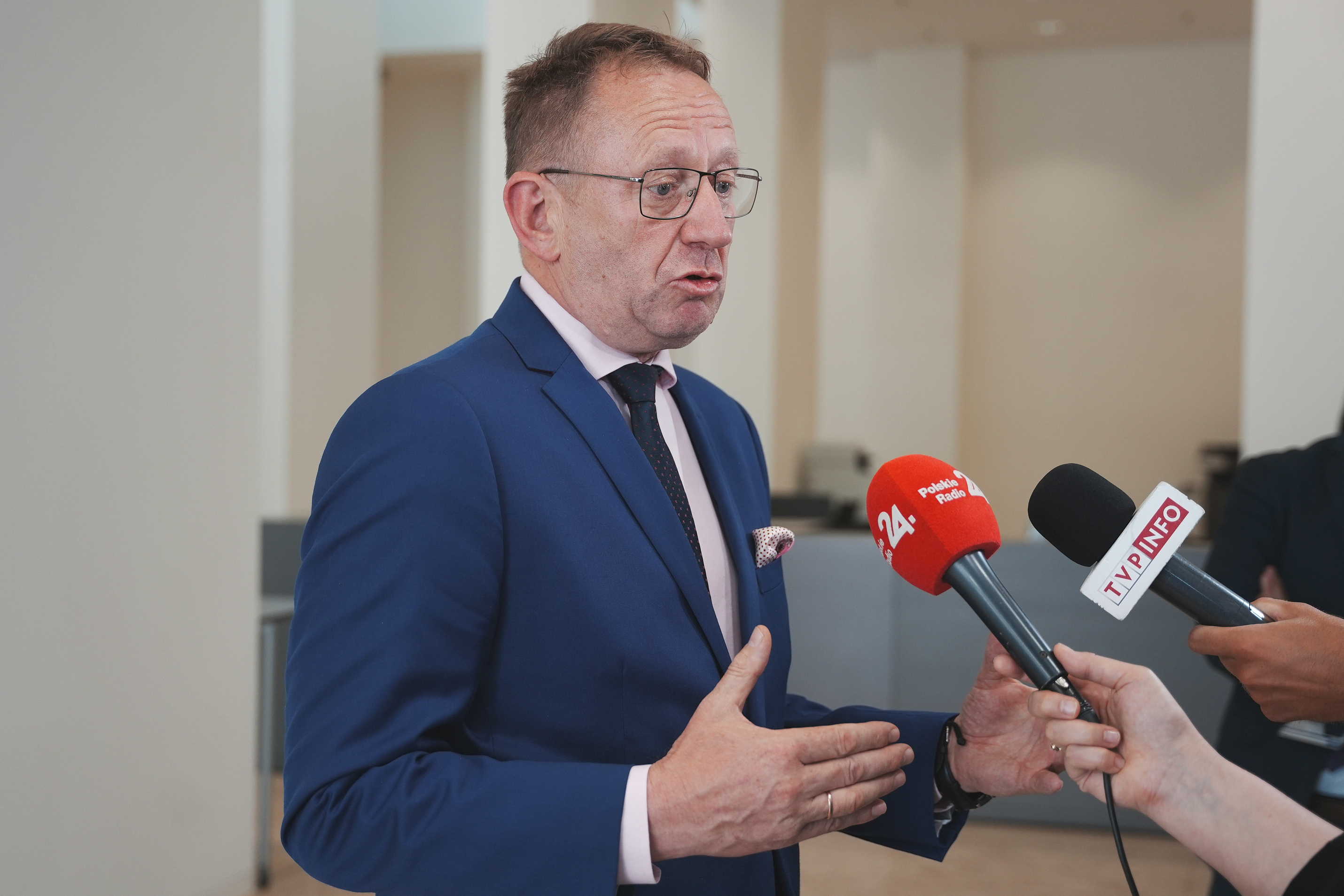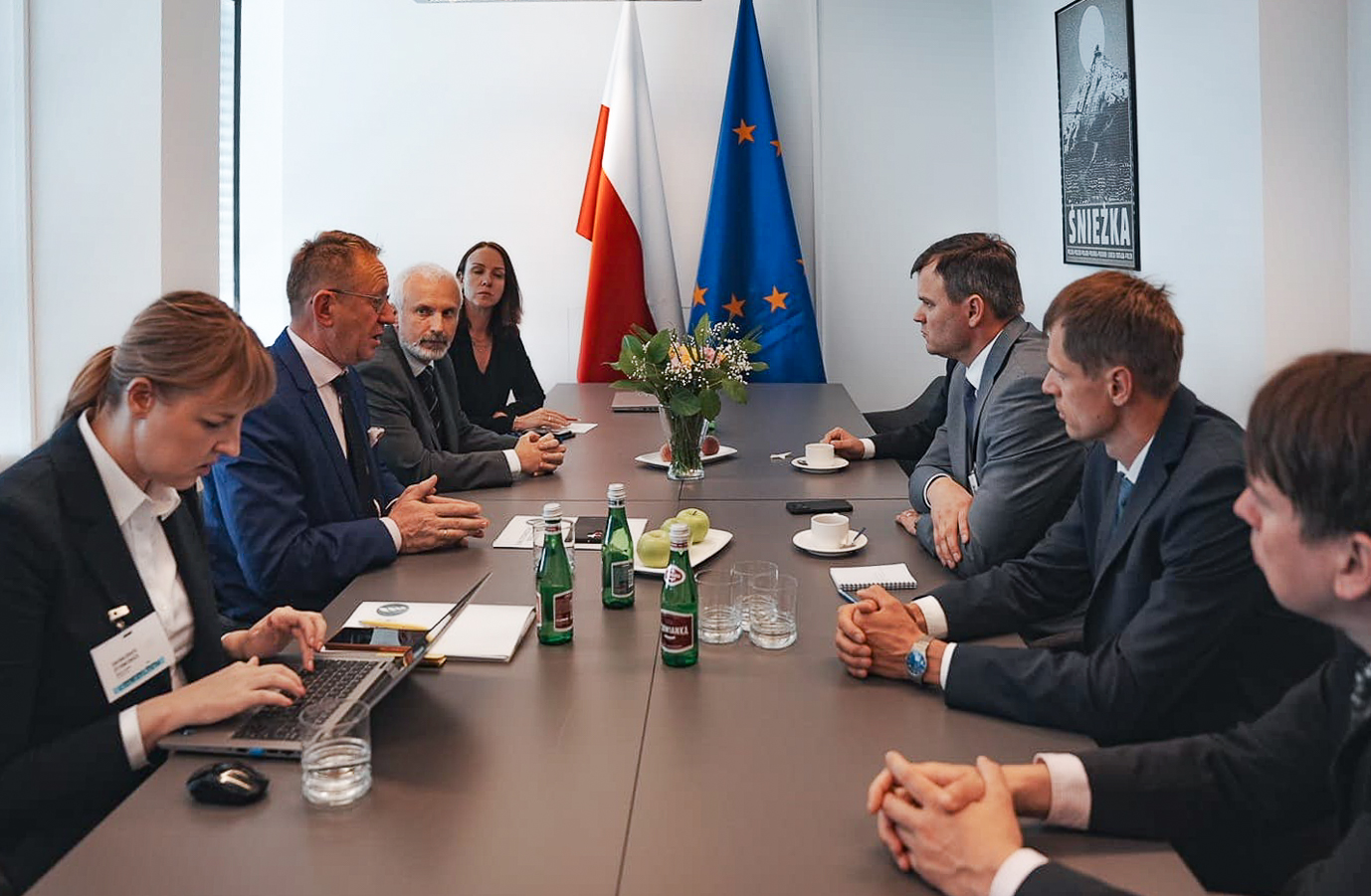AGRIFISH Council in Luxembourg – essential topics for agriculture and fisheries
28.06.2023
The EU Council for Agriculture and Fisheries (AGRIFISH) meeting was devoted to important issues relating to fisheries and agriculture. The Polish delegation was headed by the Minister of Agriculture and Rural Development, Robert Telus.

Common Fisheries Policy and fishing opportunities for 2024
Agriculture Ministers discussed the communication published by the European Commission on the state of implementation of the Common Fisheries Policy and the consultation on fishing opportunities for 2024. The Ministers' discussion was the first step in the annual process of setting total allowable catches (TACs) and quotas for the following year.
Poland's position
Minister Robert Telus emphasised that environmental pressures on the Baltic Sea have led, among other things, to the degradation of biodiversity. They also hinder fisheries management.
"Further measures need to be taken to improve the condition of fish stocks while taking into account the socio-economic aspect," the Polish Minister of Agriculture added.
Moreover, Minister Telus pointed out that Russia's uncontrolled and unsustainable activities in the Baltic Sea negatively impact fish stocks and the marine environment. Therefore, due to the Russian fishing action, the Member States' efforts to restore fish stocks in the Baltic Sea are less effective.
Conclusions on the fisheries policy package
The Presidency presented the conclusions on the EC fisheries policy package to the Council. The package aims to create sustainable, resilient, and competitive fisheries and the aquaculture sector. The Member States urged the Commission to seek a balanced approach prioritising the protection of ecosystems while considering the socio-economic aspect of the sector.
The document has been transformed into Presidency conclusions, following the objection of Italy, and will respond to the package of non-legally binding measures presented by the Commission in February 2023.
Poland's position
Poland stressed that the fisheries policy package is an ambitious action plan that is important for the future development of the industry and environmental protection. We were pleased to note in the conclusions the attention paid to the need to support fisheries and aquaculture operators in the energy transition process.
"Ensuring easier access to financial support for the energy transition of the industry is crucial for its further development," Minister Telus emphasised.
Agriculture – the most critical topics
On agricultural matters, the main discussion topics were the situation in agrarian markets following the European Commission's decision to adopt an aid package for frontline countries, the draft regulation on the sustainable use of plant protection products and agricultural trade issues.
Situation on the agricultural markets – adoption of the second aid package
The Ministers referred in the discussion to the market situation and support packages financed from the agricultural reserve. The French and German delegations raised this point. The EC discussed the content of the second (EUR 100 million for the 5 Member States neighbouring Ukraine) and third package (EUR 330 million for the remaining 22 Member States) of financial assistance.
EU Agriculture Commissioner Janusz Wojciechowski emphasised the extraordinary nature of the challenges facing the 5 Member States neighbouring Ukraine, which bear the highest cost of EU solidarity with the country.
Poland's position
Robert Telus, Minister of Agriculture and Rural Development, stressed that a favourable decision on the second support package was essential for Poland. He pointed out that the war triggered by Russia had destabilised the markets of the countries bordering Ukraine and caused losses to farmers. He stated that although the support does not cover farmers' losses, these measures are needed, and farmers are waiting for them. Moreover, he regretted that the decision-making process on adopting the support package had taken so long. The Minister also drew attention to the problematic situation in the soft fruit market in Poland.
Sustainable use of plant protection products
The Swedish Presidency presented a progress report on the proposal for a regulation on the sustainable use of plant protection products (the Sustainable Use Regulation SUR).
Poland's position
Minister Telus highlighted that no significant progress had been made towards agreeing on a common position after a year of intensive work on the draft.
"This confirms Poland's position that the draft prepared by the Commission is largely flawed in content and legislation," the Polish Minister of Agriculture added.
Minister Robert Telus said Poland was still waiting for the Commission to present a complementary impact assessment for the project.
The Head of the Polish delegation outlined Poland's main objections to the project:
-
- the transfer of the 50% reduction targets for plant protection products contained in the Farm to Table Strategy to the Member State level;
- complete ban on the use of plant protection products in sensitive areas, in particular in areas designated under the Water Directive, covering the entire Poland's territory and in NATURA 2000 areas;
- the numerous administrative burdens imposed on farmers and administrations;
- the broad and vague competences of the European Commission.
Agricultural trade issues
The Ministers exchanged views on trade-related agricultural matters. The Commission discussed the current state of bilateral and multilateral trade relations.
Poland's position
The Polish Minister of Agriculture emphasised that maintaining the European agricultural model requires protecting its competitiveness. He stressed that it was necessary for imported products to meet the same requirements as those to which European production was subject.
"We cannot allow trade liberalisation to lead to the disappearance of the European agricultural model based on small family farms. We are threatened by the relocation of agricultural production to countries with a preponderance of large-scale farms and agro-holdings," the Minister added.
At the same time, the Head of the Polish Ministry of Agriculture recalled that the decision to liberalise imports from Ukraine had caused disruptions in the Polish market for cereals and flour, eggs, and poultry meat. He informed that Poland also noted severe problems for the soft fruit market, whose imports from Ukraine have already been fully liberalised under the Association Agreement.
"We ask that the EC analyse the situation on these markets and propose remedial measures," the Polish Minister of Agriculture appealed.
The rise of a large carnivore population
At the request of the Romanian delegation, the Council debated the topic of the increasing population of large carnivores and the threat to humans and animals. Most Member States, including Poland, pointed to the problem of the growing wolf population.
Poland supported Romania's appeal to analyse the current effects of EU legislation in this area, particularly the extent to which it remains adequate and practical in dealing with the increasing threat posed by large carnivores and wild boar.
"We agree with Romania that it makes sense to commit more European funds to finance joint monitoring and activities related to the protection of farms and livestock from damage caused by wolves," said Minister Telus.
The postulate of banning the breeding of animals for fur
The Ministers discussed the ban on fur farming put forward by Austria, Germany and the Netherlands.
Minister Telus noted that the introduction of the postulated ban would result in job losses for people employed on such farms and in cooperating entities. It will then be necessary to create alternative employment for them. The ban will also bring the need to allocate funds from the EU budget to compensate producers.
Minister Telus believes that proposals for future animal welfare regulations must be based on the latest scientific research and experience in the Member States. At the same time, they must consider the economic conditions of such production and the economic impact on the individual Member States.
On the sidelines of the AGRIFISH Council – talks among the 'Five'
On the sidelines of the AGRIFISH Council meeting, Minister Telus held political consultations within the coalition of five EU countries (Poland, Bulgaria, Romania, Slovakia, and Hungary). The talks concerned the continuation of cooperation and further actions related to the crisis in agricultural markets caused by the war in Ukraine.
The shared expectation of these countries is mainly the need to extend preventive measures beyond 15 September 2023 for four agricultural products from Ukraine.
Minister Telus proposed another meeting of the alliance of the five frontline countries in July in Warsaw, this time in a format extended to include Ukraine. The aim of the meeting is to debate long-term, effective mechanisms to ensure fair competition conditions, taking into account Ukraine's future membership of the European Union.
Bilateral meetings
The Head of the Polish delegation held bilateral meetings with the Estonian and Latvian Ministers of Agriculture. During the talks, the Ministers raised the matter of the development of common tools to enable the transit of Ukrainian products through the countries of our region.

